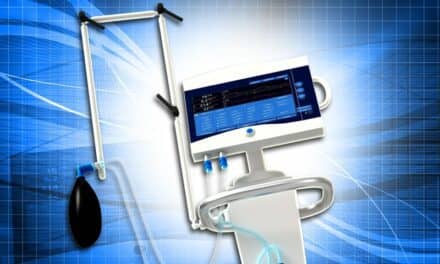Greenville, S.C.-based nonprofit healthcare provider Prisma Health announces that it has received emergency use authorization from the U.S. FDA for VESper, a ventilator expansion device that allows a single ventilator to support up to four patients during times of acute equipment shortages such as the current COVID-19 pandemic. Produced using 3D printing technology, the device is developed with material already in use for medical devices and produced at minimal cost.
Prisma Health experts are working with national COVID-19 teams who have no more ventilator capacity and who can initiate emergency use of the prototype. “We will be working closely with these teams during their field testing to monitor clinical outcomes,” company officials say. “Those field tests will determine whether the device performs as designed, per FDA guidelines.”
Emergency use authorization can offer critical care patients access to a medical device that has not gone through normal FDA approval; this is used when no comparable or satisfactory alternative options are available.
“When we see rapid increases in patients who require machine-assisted breathing, an acute shortage of necessary equipment can happen overnight,” says Peter Tilkemeier, MD, chair of the department of medicine at Prisma Health-Upstate. “The VESper device can be lifesaving when the number of critically ill patients requiring breathing support is greater than the number of available ventilators. A number of U.S. hospitals are likely to begin experiencing this with COVID-19.”
Hospitals can begin to apply to receive the free source code and printing specifications for the device today by registering on Prisma Health’s website www.prismahealth.org/VESper for their use in printing the VESper device. Prisma Health is collaborating with other major companies such as HP Inc. and its digital manufacturing network to quickly scale 3D production of validated parts for distribution in areas of greatest need and areas with the potential to exceed their ventilator capacity in the near future, such as COVID-19 “hot spots” as designated by FEMA. Currently Prisma Health and South Carolina hospitals have enough ventilators available for patients.
“This is an exemplary demonstration of rapid innovation and collaboration,” says Mark O’Halla, president and CEO of Prisma Health. “I am so proud of the creativity and perseverance of our clinical team who came together to develop a potentially life-saving solution at a critical time for our country, our communities and our patients. We are anxiously awaiting the results of the prototype field tests.”





